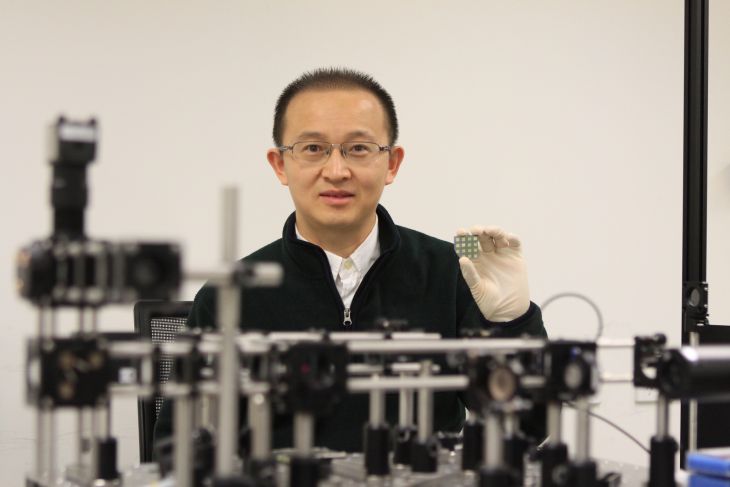Electrical engineers from The Australian National University (ANU) have demonstrated how to create exciton pairs in a new type of semiconductor structure, paving the way for next generation technologies required for high speed computing, information processing and data communication.
The research could lay the foundations for a new generation of smartphones and computers that are blisteringly fast but also consume significantly less energy than current devices.
The new technology has been developed by sandwiching together two sheets of bendable monolayer semiconductors and allows interlayer excitons to bind together and form pairs. The research is published in Nature.
An interlayer exciton is a quasiparticle made by a negatively charged electron and a positively charged "hole" that are sitting in two different layers. Interlayer excitons form when light is absorbed in a bilayer semiconductor.
"Interlayer exciton pairs were predicted by theory decades ago, but we are the first to observe them in experiment," lead author Professor Yuerui (Larry) Lu said.
The discovery could help the researchers achieve a process known as superfluidity -- a condition where electrical currents can travel without any loss of energy.
PhD researcher Xueqian Sun said superfluidity is best visualised as a "super highway" that allows excitons to travel at incredibly fast speeds, similar to cars travelling on a freeway.
"The current generation of semiconductor technology used in our smartphones and laptops limits the speed that excitons can travel, stopping them from reaching their full potential," Ms Sun, who is the first author of the paper, said.
"A good way to visualise this is to think of a car that is bumper-to-bumper on a highway full of traffic. A car can only travel so fast in these conditions, and the same is true for excitons."
Professor Lu, who is also the chief investigator at the ARC Centre of Excellence for Quantum Computation and Communication Technology, said: "The incredibly small, lightweight and versatile nature of this new semiconductor structure, which isn't visible to the naked eye, means it can be incorporated into a range of miniature technologies, with promising implications for the space sector, quantum lasers and other quantum light sources."
Professor Lu said the next challenge is to figure out a way to make the exciton super highway function at room temperature -- an essential next step to integrating the technology into our smart devices.







